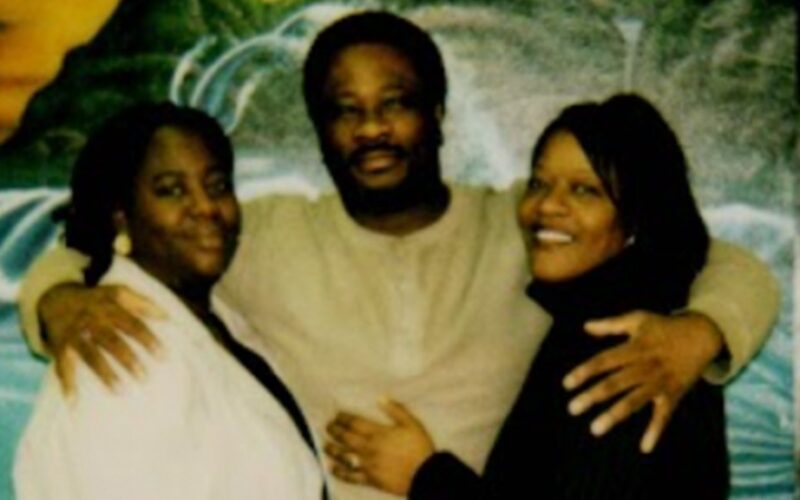The case of David McClary, one of four men convicted of murdering rookie Police Officer Edward Byrne in 1988 — a killing that came to symbolize that decade’s lawlessness in New York City — comes before the Parole Board for the eighth time later this month.
McClary, now 59, has been denied parole seven times in the 36 years he has been in prison, in part because of strong opposition from the Police Benevolent Association and the slain officer’s family.
This year, though, McClary’s supporters are making a more public bid for his release, based on copies of letters obtained by the Daily News that were sent to the board from several pastors, including a retired city correction officer. A pastor who was an NYPD officer for a short period and a former parole commissioner also wrote letters to the board on McClary’s behalf.
“He has never stopped participating in programming that helps fellow incarcerated individuals turn away
from a criminal mindset,” wrote Bronx Rev. Michael Peters, 64, the city correction officer, who served from 1983 to 2003.
“This work has always been important to him, and the fact that he remains committed to it despite setbacks to his own release, is a testament to his belief in crime reduction and rehabilitation.”
Byrne’s family remains unalterably against his release. Edward’s brother, the late Lawrence Byrne, served as the NYPD’s top lawyer from 2014 to 2018, opposing parole for the quartet from that perch for years. He died in December 2020.
“It doesn’t matter how much ‘progress’ this individual claims he has made in prison,” said Byrne’s brother Kenneth Byrne, 56, a retired lawyer.
“My brother’s progress ended the night he was assassinated. He planned to get engaged, get married and have a family — all of that was ripped away from him. Eddie was just 22. He never got the chance to live his life. None of his killers deserve a second chance to live theirs.”

Byrne was alone in a patrol car on Feb. 26, 1988 guarding the Queens home of a witness when McClary and three others ambushed him in an eruption of gunfire.
McClary was the shooter, while Todd Scott tapped on his passenger window to distract the young cop, records show. Scott Cobb was the getaway driver and Philip Copeland was the enforcer sent to make sure the murder took place.
Crack ganglord Howard “Pappy” Mason ordered the hit from jail in retaliation for Mason’s arrest on gun possession. He is currently at Devens FMC, a Bureau of Prisons medical facility in Massachusetts, records show.

In the aftermath, Byrne’s murder galvanized tough on crime momentum at the height of the crack years, contributing to a surge of federal funding for more cops. The Justice Department also established a grant program in his name that exists today.
McClary entered the prison system on June 28, 1989. He is currently at Wende CF, near Buffalo, the same facility that has housed disgraced movie mogul Harvey Weinstein.
The quartet first became eligible for parole in 2013. Two of the three other convicted men remain in prison — Copeland in Attica CF and Scott in Shawangunk CF. But Cobb was paroled in September 2023.
McClary’s supporters, in their letters, say he meets every criterion for parole including strong community support, low risk of re-offending, and proven rehabilitation. The letters detail a transformation from a lost soul to repentant, religious man who contributes to the prison community.
In her letter, the former Parole Commissioner, Carol Shapiro, frames McClary’s bid in what he has accomplished in prison vs. the crime “the one static event that cannot be undone,” as she puts it.
“He’s done everything possible. He survived over four years in solitary confinement,” she wrote.
Shapiro, who served on the board from 2017 to 2019, has previously described the parole system as one that “values vengeance and endless punishment above redemption.”
“I am fully aware of the political pressures from the Police Benevolent Association and elected officials to apply perpetual punishment to cases such as Mr. McClary,” she wrote. “I do hope the Board can give due attention to whom Mr. Clary is today.”

PBA President Patrick Hendry countered that McClary in killing Byrne “attacked the rule of law and every innocent New Yorker.”
“It is absolutely disgraceful that anyone would speak up in support of releasing this cold-blooded assassin,” Hendry said. “When he pulled the trigger, he didn’t just murder a hero police officer. Eddie’s murder united this city to reclaim our neighborhoods from murderous drug gangs. We can’t allow these pro-criminal activists or the parole board to erase that progress by setting this cop killer free.”
PBA spokesman John Nuthall said the union has collected 42,107 petition signatures opposing McClary’s parole since he became eligible, including 11,104 since his last hearing.
In an April 8 letter, Queens District Attorney Melinda Katz also strongly opposes parole, citing eight infractions he has received in prison and an attempt to downplay his role in the murder during his 2023 parole hearing.
“He claims he is still incarcerated due to ‘politics’ — rather than the nature of his role in this egregious crime,” Katz wrote, adding in the 2022 parole hearing, McClary stated “If he had killed a ‘Joe Blow,’ he would have been back home already.”
The DA also quoted from the 2023 parole board decision, which said McClary stated he “minimized [his] role in the instant offense” and “denied [he] was the shooter.”

McClary’s family is behind him. “While I make no excuses for the nature of David’s crime, David is no longer that person,” wrote his twin sister Diane McClary, a hospital administrator. “David went to prison as a young, unfocused kid, but is now a mature, educated, confident, and distinguished man, with the ability to own up to the mistakes he has made in life.”
Gerald and Kenneth Seabrooks, two brothers who are pastors in Queens and supporters of Mayor Adams, also back McClary’s parole.
“He will be a role model and an asset to our community. He has paid his debt to society,” Gerald Seabrooks wrote.
And Jose Hamza Saldana, who was a kind of prison mentor for McClary, recalled their relationship after he emerged from the long stint in solitary confinement.
“He looked old and frail. He was paranoid, socially withdrawn, and angry. He felt the State was trying to kill him,” recounted Saldana, now the director of the prison advocacy group Release Aging People in Prison.
Since then, “David has made a life-time commitment to help end the cycle of violence in our communities. He is one of us. Allow him to get back with us, and you will see all that he offers our communities. We don’t ask anyone to forget the crime, only to remember that people can and do change.”








